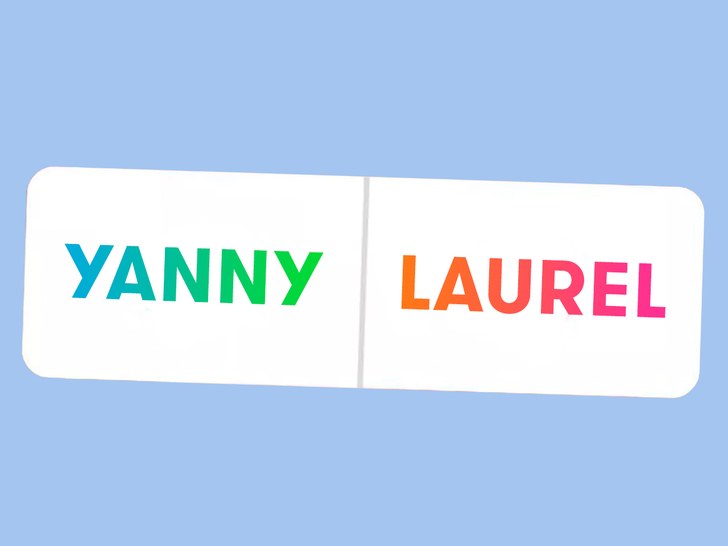Distorted Audio Clip Leads Internet Baffled and Divided
May 21, 2018
Anyone who’s been on any social media site lately will have probably seen – er, heard – the latest viral meme; a three-second-long audio clip of a voice saying an ambiguous phrase that can either be interpreted as the dictionary word “laurel” or the non-existent nonsense word “yanny.” The ambiguity of the clip and how its sound is different to different people has divided the internet, with fights breaking out between those on “Team Laurel” and “Team Yanny.” The phenomenon can be compared to the viral “Dress Illusion” of 2015, in which an ambiguous photo of a dress that could be either interpreted as blue and black or white and gold caused similar discourse online.
Just like the Dress Illusion was later confirmed by the company that makes the dress as being blue and black, the “Laurel/Yanny” clip was confirmed to be of the word “laurel.” but distorted to make its sound ambiguous, by Wired.com a day after it went viral. The Wired team found out that a student at Georgia’s Flowery Branch High School named Katie Hetzel was working on a World Literature project in which one of the vocabulary words she had to include in her project was “laurel.” She played the sound clip for the class and many people had commented that they heard the nonsense word “yanny,” so she posted a sound clip of it to Instagram and her friend, Fernando Castro, turned it into a poll asking their peers whether they heard the correct “laurel” or the nonsense “yanny.” Roland Szabo, one of their classmates who posts on Reddit under the username RolandCamry, is responsible for the clip going viral, as his Reddit post about it led to famous YouTube and Twitter personality Cloe Feldman posting the clip to her Twitter and with it, the clip turning into the viral sensation we know today.
So, why do some people hear “laurel” and others “yanny?” It all has to do with how our ears perceive different sound frequencies. The “yanny,” which sounds like it is being said by a nasally, high voice, is the higher frequencies of the sound; the “laurel,” which sounds like it is being said by a deep, rich voice, is the lower frequencies of the sound. Whether you hear “yanny” or “laurel” depends on which frequencies of sound your brain emphasizes. I, for one, heard both sounds at the same time upon listening to the clip; this is because my ears don’t particularly emphasize a certain pitch of frequencies and instead, hear all frequencies equally.












